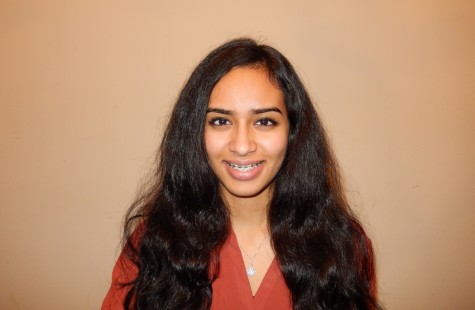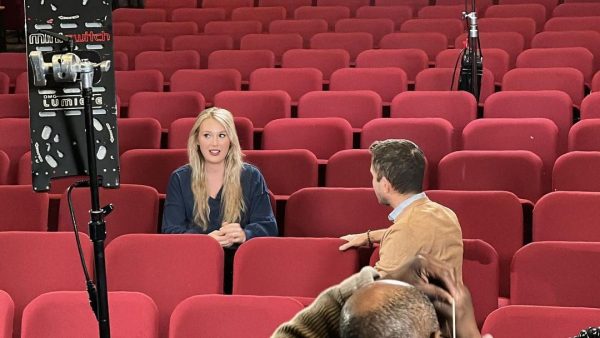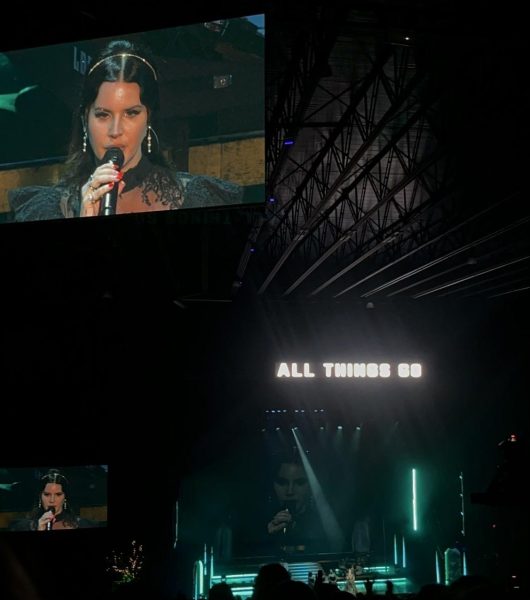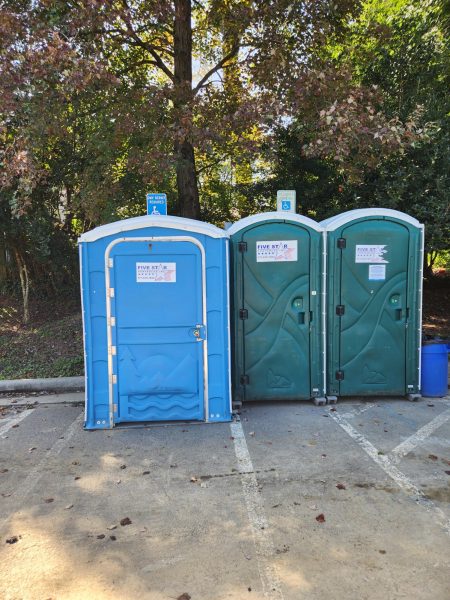Is your teacher politically correct?
Whether it be talking about students with disabilities or talking about how to refer to a specific race, there is an entanglement of issues surrounding the “politically correct” way of marking things.
Take the responsibility of teachers- should they be required to use politically correct terminology and does their political correctness affect the students?
“Regardless of what they need to say, most teachers tend to be more politically incorrect,” junior Gillian Thomas said.
Particularly in the beginning of the year, as teachers get more comfortable with the students, they also lose more authority because of less “correct” ways of referring to different things.
“When teachers are less politically correct, students are more comfortable and connected to each other, and have more fun with teachers because of the relaxed atmosphere,” junior Bee Coaquira said.
In order to make the classroom environment more appealing to students, teachers may talk in a joking tone.
“One of my history teachers would sometimes jokingly say ‘You punk, you didn’t do your homework,’ but in a half-serious way,” junior Alan Vargas said.
Perhaps students are affected educationally- hearing an English teacher talking about a subject in their respective curriculum, students could start following the way that the higher authority talks.
Many students find that there is a bit of correlation between teachers being politically correct and as a result, how education is affected.
Some students find that although a number of teachers may believe in one thing, they are forced to teach their students about material that is in the curriculum that is not quite in their favor. Consequently, this leads to the use of perhaps derogatory terms when it comes to teaching unfavorable topics in class.
“Some teachers stay as neutral as possible, while other teachers are on the more radical side. They attempt to conform to that realm of neutrality- but sometimes end up being either extremely negative or positive,” Thomas said.
Neutrality comes into play when a teacher is not comfortable with students or don’t want to offend students by their language and tone.
Sometimes, steering away from a more appropriate mannerism of speaking can affect class discussions when students and teachers talk about certain issues.
At times, teachers would jokingly comment on the matter of race, perhaps trying to make a more comfortable atmosphere for students.
“When our history class was asked about those who were the troublemakers during Heritage Night, she pointed to herself, insinuating that African Americans were the ones who were mostly making trouble,” said Vargas.
Sometimes there would matters in which teachers would need to use themselves as props when talking about sensititve issues having to do with race.
“My math teacher once was comparing heights in a study for math class. He said how Asians were the shortest, and used himself as an example so he wouldn’t seem mean,” Thomas said.
“It’s distracting. The closer a teacher becomes the more off-topic they may get. So, I believe it is more appropriate to have a more professional air when teachers speak to students or other teachers,” Thomas said.
English and Creative Writing teacher, Fusun Sulzbach, believes that being politically correct is much more appropriate to be in class, to be good role models for students.
“I am way much more aware, even jokingly, I wouldn’t say anything that would hurt or disrespect anyone,” Sulzbach said.
When Sulzbach’s English class would be discussing the Holocaust, there would be especially more stress on speaking politically correct.
“Everyone has their own style of speaking, and if they can get away with that, then that’s fine but this is my way of speaking,” Sulzbach said.
Without the sense of professionalism or use of the “politically accurate” terminology, teachers are not able to maintain their authority which can result in kids taking advantage over the weakness of proficiency in using correct language.
“If teachers are too lax, students don’t learn. They might have fun, so teachers like doing that sometimes, but it is not good for learning in the long run,” Thomas said.
Even when teachers do talk in a higher voice, some students may take no heed to the lecture, and become disinterested in class, which is why there must be a good balance between socially acceptable words for the youth, as well as professional.
“Teachers have to watch how politically correct they are, and try to have a mix or variation in tone, in order for the students not to be dull or disinterested,” Coaquira said.
IB Anthropology teacher Holly Miller believes that there is more to being politically correct- as the ideology itself is demeaning.
“A better word for politically correct is “culturally sensitive”. It means being sensitive to the differences of other people whether they are cultural or biological in nature,” Miller said.
“I try to use culturally sensitive terminology. I try to be respectful of various cultural and biological differences in people and use the terms they prefer to be called,” Miller said.
Ms. Miller found through her own experience that some terms are better suited to being used than others in school. For example- saying “little people” instead of “midget,” “inter-sex” instead of “hermaphrodite.”
“It’s all in moderation. It’s detrimental to education if there is too much of a loose term system in class,” Coaquira said.

Aniqa is a staff writer for the A-Blast and a senior at AHS. She is a member of the Green Atoms, NHS, MHS, NEHS and other activities. She also serves as...








